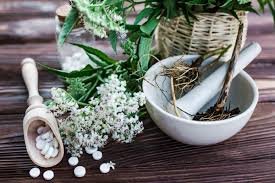Anti-Anxiety Medicinal Plants and Their Effects
Anxiety affects millions of people globally. While various treatments are available, many turn to medicinal plants for relief. These plants offer a natural approach to managing stress and anxiety, often with fewer side effects than prescription medications. This post explores some of the most effective anti-anxiety medicinal plants and how they can help promote calmness and reduce anxiety levels.

1. Lavender: The Calming Herb
Lavender is a well-known anti-anxiety herb, commonly used in aromatherapy to relieve stress and promote relaxation. The soothing scent of lavender reduces heart rate and blood pressure, which often rise during anxiety episodes. People use lavender in essential oils, teas, or dried flowers. Research shows that lavender calms the nervous system, making it an excellent herb for those seeking relief from anxiety and restlessness.
2. Chamomile: A Gentle Relaxant
Chamomile is a mild, sedative herb often used to calm nerves and promote sleep. It has been used for centuries to treat anxiety and insomnia. Drinking chamomile tea before bed helps ease tension and induce relaxation, making it particularly useful for those who struggle with anxiety-related sleep disturbances. Chamomile’s gentle calming properties also help reduce nervousness and irritability throughout the day.
3. Ashwagandha: Stress-Reducing Adaptogen
Ashwagandha, an adaptogenic herb used in Ayurvedic medicine, helps the body cope with stress. It balances cortisol levels, a hormone released during stress. Chronic anxiety leads to elevated cortisol, and ashwagandha can help regulate this, promoting calm and stability. Studies have shown ashwagandha reduces anxiety significantly, making it a powerful natural remedy. You can take ashwagandha as a supplement or in teas and tinctures.
4. Valerian Root: A Natural Sedative
Valerian root promotes relaxation and improves sleep quality, making it an excellent choice for those dealing with anxiety-induced insomnia. works by increasing GABA levels, a neurotransmitter that reduces nerve activity and promotes calmness in the brain. Regular use of valerian root helps alleviate symptoms of anxiety, including nervousness and restlessness. You can consume valerian root in capsules, tinctures, or teas.
5. Lemon Balm: A Soothing Herb
Lemon balm, a member of the mint family, has mild sedative properties that help reduce anxiety and promote emotional well-being. Studies show that lemon balm decreases anxiety, stress, and insomnia by calming the nervous system. It also boosts mood, benefiting individuals who experience anxiety-induced irritability and tension. Drink lemon balm tea or apply its essential oil to calm your mind and reduce anxiety.
Conclusion
Anti-anxiety medicinal plants offer a natural, effective way to manage stress and anxiety. From the calming effects of lavender to the stress-reducing benefits of ashwagandha, these herbs provide relief without the harsh side effects of pharmaceutical medications. By incorporating these plants into your wellness routine, you can support your mental health and cultivate a sense of calm. Whether in teas, tinctures, or essential oils, these plants are great options for addressing anxiety and promoting well-being.



